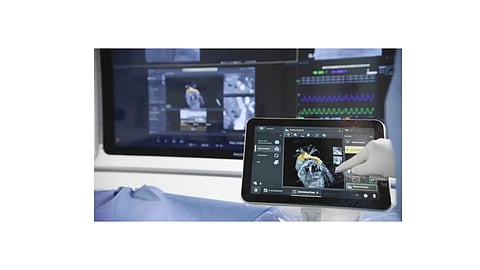

Philips has initiated a new clinical trial, Radiqal, aimed at significantly reducing radiation exposure during coronary interventions. The trial will assess an ultralow X-ray dose technique that could benefit both patients and medical staff in catheterization labs. The study, announced at the EuroPCR 2025 interventional cardiology conference in Paris, plans to enroll over 800 participants across the U.S. and Europe.
Radiqal will evaluate the safety and effectiveness of Philips' ultralow radiation imaging on its Azurion image-guided therapy systems, which feature ClarityIQ technology. This system already achieves substantial dose reduction through real-time motion compensation and advanced image processing. The trial aims to cut radiation exposure by an additional 50% compared to the current lowest setting on the Azurion platform.
Principal investigator Dr. Javier Escaned, a cardiology professor at Hospital Clínico San Carlos in Madrid, emphasized the importance of minimizing radiation without compromising procedural quality. “It is also important to achieve high-quality angiograms when using diluted contrast media as part of ultra-low contrast procedures,” he added.
Reducing radiation is not only vital for patients, particularly those with high body mass index or requiring repeat procedures, but also for interventional cardiologists. Daily exposure to ionizing radiation has been linked to increased risks of cancer, cataracts, and reproductive issues, especially for those repeatedly positioned near X-ray machines. In addition, wearing heavy lead aprons to protect against radiation often results in chronic musculoskeletal problems.
Dr. Darshan Doshi, medical and clinical head of Philips' image-guided therapy division and interventional cardiologist at Massachusetts General Hospital, noted the significance of combining low-dose imaging with high-resolution output. “Minimizing radiation exposure is increasingly critical,” he said, highlighting the growing need for safer, more ergonomic working environments.
This trial aligns with a broader movement toward safer interventional practices. Earlier this month, at the Society for Cardiovascular Angiography & Interventions (SCAI) conference in Washington, D.C., Philips and other stakeholders issued a joint statement advocating mandatory radiation safety measures in cath labs. Organizations such as the American College of Cardiology and the Society for Vascular Surgery supported the call, citing the slow adoption of safer technologies due to regulatory and financial barriers.
Additionally, at EuroPCR 2025, Philips expanded its 3D intracardiac echocardiography system, VeriSight Pro, to European markets. The device offers real-time heart imaging without the need for general anesthesia, marking another step forward in minimally invasive cardiology.